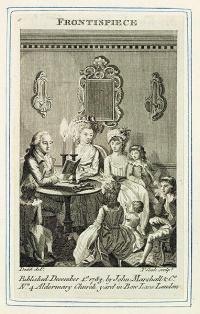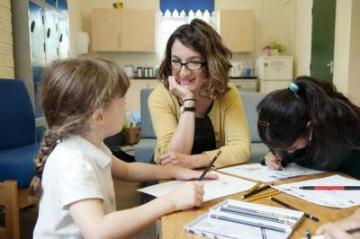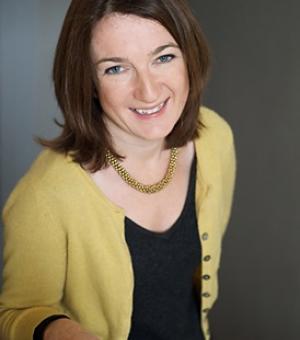Professor Abigail Williams
Reading it Wrong
My new book, which came out in 2023 with Princeton University Press is called Reading it Wrong: An Alternative History of Early Eighteenth-Century Literature. It's a study of the many ways in which texts are misread in the eighteenth century. I am interested in the evidence of readers who were muddled, bewildered, or just didn’t understand the books in front of them, and in what we might do with a history of reading that includes getting things wrong. It offers intriguing parallels with contemporary internet parody and digital culture.
Books and their social lives

The Social Life of Books investigates the social history of reading, and reveals the many ways in which books were used and enjoyed within homes - and how domestic contexts might change our sense of what we read. The book draws on a range of archival and print sources, from furniture catalogues to commonplace books to letters, diaries, spouting collections and home-made playbills to illuminate the rich world of communal reading.
Jonathan Swift CUP edition of Journal to Stella
In 2013 I completed an edition of Jonathan Swift’s Journal to Stella for Cambridge University Press’s multi-volume Collected Works of Jonathan Swift. Part of the work of that edition involved deciphering Swift's bizarre baby language and manuscript obliterations. As part of my detective work on the edition, I became increasingly interested in Swift’s obliterations on his letters, and in the longer term, I would like to work on a more general study of literary crossing out. How should we think about text which is there but not there? I am one of the General Editors of the CUP Complete Works of Jonathan Swift, and together with Adam Rounce, am editing Swift's Marginalia and autobiographical writings.
Digital Miscellanies Index
I'm also very interested in the potential of digital humanities as a way of better understanding our literary and cultural past. I led the Digital Miscellanies Index, a 6 year Leverhulme-funded research project created a database of the contents of the 1400 or so poetic miscellanies published during the course of the eighteenth century. Completed in autumn of 2017, it offers new ways of mapping the publication of poetry in the period and better understanding the drivers of canon formation in the period. Together with some of the researchers on the project I edited a special collection of Eighteenth-Century Life focussing on findings from the dataset.
Radio work
I am by nature an enthusiast, and I enjoy engaging with wider audiences. I have presented radio programmes for BBC Radio 4 and have really enjoyed the collaborative and creative side of this kind of writing and research. I began with 'The Pedant's Progress' on changing perceptions of scholars and scholarship from the 18th century to the 21st. More recently, I presented a 3 part series on Pride or Prejudice: How We Read Now which explores the impact of current culture wars and identity debates on the ways we read and talk about literature. In Spring 2023 I am presenting another Radio 4 series on 'I Feel Therefore I Am', which digs into the cultural, political and philosophical history of ideas of 'my truth' and 'lived experience'.
Current collaborative projects
I am working on two new collaborative projects at the moment. One of these, Conversational Learning, is a schools-focussed innovation project which uses AI-generated online dialogue to show the way English writing skills can be used in a range of career settings. I am doing this in partnership with a tech company, Charisma.ai, and My Path, an online careers education provider.
The other collaboration I am doing is Reading the Room, a year-long project which I am running with Tim Pye, the National Libraries Curator of the National Trust, Dr Amy Solomons, and Dr Alice Leonard from the University of Coventry. Together we want to explore what it means to engage with books in a heritage setting, and what forms of mediation or interpretation might better enable contemporary engagement with our histories of books and reading.
In addition to these projects, I am also working on a book for Penguin Allen Lane, which explores the lives and aspirations of a group of non-elite readers in the early eighteenth century.
At St Peter's I teach undergraduate courses in the period 1660-1830. In the Faculty, I have lectured on Restoration comedy, the History of Reading, High and Low Culture, Pope, Swift, Montagu, Behn and Rochester. With my colleague Adam Smyth I am teach a third-year option for paper 6 on 'Texts in Motion', about the material forms of books and the ways they circulate in different forms and media. I have also taught undergraduate and graduate courses on sociability and material culture, along with Dr Giovanna Vitelli, in the Ashmolean Museum, and was Mellon-funded Faculty Fellow at the Ashmolean, where I developed new ways of teaching with objects and images. With Dr Jim Harris I teach a lecture series called 'Stuff Matters' on material culture and literature in the 18C. I have offered and taught MSt options on Poetry and Politics, and the literature of Grub Street. I am currently co-teaching the MSt B course on material texts. Topics for doctoral supervision have included: celebrity and female actors in the eighteenth century; Defoe and historiography; quotation of Shakespeare in the eighteenth-century novel, the correspondence of Jacob Tonson; labouring class verse and depictions of slavery, Pope's letters, and the theatrical ephemera in the Brady collection at Christ Church. I supervised an AHRC Collaborative Doctoral Award on domestic reading, led jointly with the Museum of the Home, in London.
My edition of Jonathan Swift's Journal to Stella for the new Cambridge Complete Works of Jonathan Swift came out at the end of 2013. You can watch me talking about my research on Swift in a short YouTube lecture on 'Swirls and Secrets'. I was the Principal Investigator of a Leverhulme Research Project Grant, which will enable the creation and completion of the Digital Miscellanies Index. This three-year externally funded project created a freely available database enabling researchers to track the changing fortunes of individual poems and authors across the thousand or so miscellanies (popular poetic anthologies) published during the eighteenth century. The Index is currently hosted at the Bodleian Centre for the History of the Book, and the contents of the Index are based on the Bodleian's Harding Collection of Printed Music, left to the library in 1974 by Walter N.H. Harding, a British-born Chicagoan ragtime pianist. Click here for a link to 'Ragtime to Riches', the Radio 3 programme I presented about Harding and his collection. There is also a blog for the Digital Miscellanies project.
My second Leverhulme Research Project Grant, 'A New History of Reading and Authorship' linked the DMI to two other major indexes of seventeenth-century miscellanies, created by Professor Michelle O Callaghan (Reading) and Dr Adam Smyth (Oxford). This created a unified resource across the period 1540-1780. Working with Dr Carly Watson, the postdoctoral project manager, we explored the evolving nature of readership and authorship in this period. My monograph, The Social Lives of Books, formed a major part of this project.
My third book project is called Reading it Wrong: An Alternative History of Early Eighteenth-Century Literature and will come out with Princeton University Press in 2023.

Knowledge Exchange, Impact, and Innovation
I am currently Associate Head of Research and Innovation for the Humanities Division and I was the first Knowledge Exchange Champion for the Humanities Division. I continue to be interested in collaborations between humanities researchers across the university, and external institutions, charities, businesses and cultural organisations.




